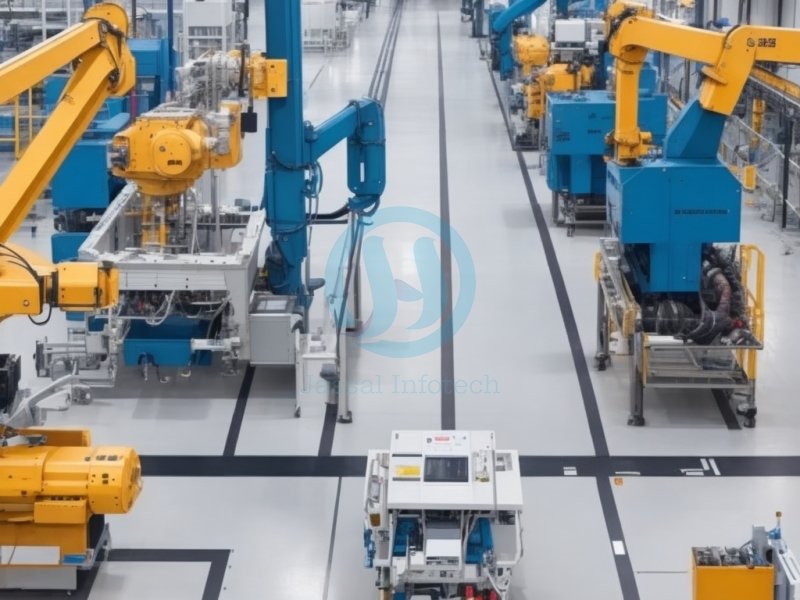
In the ever-evolving landscape of modern manufacturing, one technology stands out as a game-changer: robotics. Automation has been reshaping the industrial sector, and robotics plays a pivotal role in this transformation. From increased productivity and efficiency to improved safety and precision, the impact of robotics in manufacturing cannot be overstated. In this blog, we'll delve into the fascinating world of robotics and explore how automation is revolutionizing industrial processes like never before.
The integration of robotics into manufacturing processes has seen a remarkable surge in recent years. Advancements in technology, including artificial intelligence, sensors, and machine learning, have allowed robots to become more agile, versatile, and efficient. Manufacturers worldwide have embraced this revolution, leveraging robots to streamline operations, cut costs, and meet ever-growing demands.
Automation through robotics has unlocked unprecedented levels of productivity and efficiency in the manufacturing sector. Robots can tirelessly execute repetitive tasks with unmatched precision, reducing human errors and variability. With increased production rates and reduced cycle times, manufacturers can optimize their operations and stay ahead of the competition.
Inconsistent product quality is a major concern in traditional manufacturing processes. However, with robotics at the helm, manufacturers can ensure unparalleled product consistency. Robots adhere to strict programming, eliminating the chances of variations and delivering high-quality products consistently.
Safety is a paramount concern in any industrial setting. By delegating hazardous and physically taxing tasks to robots, manufacturers can significantly reduce the risk of workplace accidents and injuries. This shift not only protects workers but also reduces downtime caused by potential accidents, leading to continuous and smooth operations.
Contrary to the common misconception, robotics enables rather than limits customization. Modern robots can be programmed to adapt to various tasks and product configurations rapidly. This flexibility empowers manufacturers to respond quickly to market demands, efficiently switch production lines, and cater to specific customer requirements.
Robotics in manufacturing goes beyond the factory floor. Smart robots are increasingly being deployed in supply chain management, optimizing logistics, warehousing, and distribution. Autonomous vehicles and drones play crucial roles in moving goods and managing inventory, ensuring a seamless flow of products from the production line to the end consumer.
The advent of robotics doesn't signify the replacement of human workers but rather a shift in their roles. With automation handling mundane tasks, human workers can focus on higher-value activities such as robot programming, maintenance, and process improvement. Reskilling the workforce empowers employees, fosters innovation, and leads to a more competent and adaptable workforce.
Robotics in manufacturing also brings positive environmental implications. By streamlining processes and minimizing waste, automation significantly reduces the overall carbon footprint. Energy-efficient robots further contribute to sustainable practices, aligning manufacturing with eco-friendly initiatives.
As we look ahead into the future of manufacturing, robotics and automation will undoubtedly remain at the forefront of industry transformation. The powerful combination of AI-driven robots, advanced sensors, and machine learning algorithms will continue to redefine industrial processes, making them more efficient, safe, and sustainable. Embracing this revolution will not only keep manufacturers competitive but also pave the way for a smarter and more innovative industrial landscape. In the grand symphony of Industry 4.0, robotics holds the baton, orchestrating a harmonious and prosperous manufacturing future for all.
Share This News